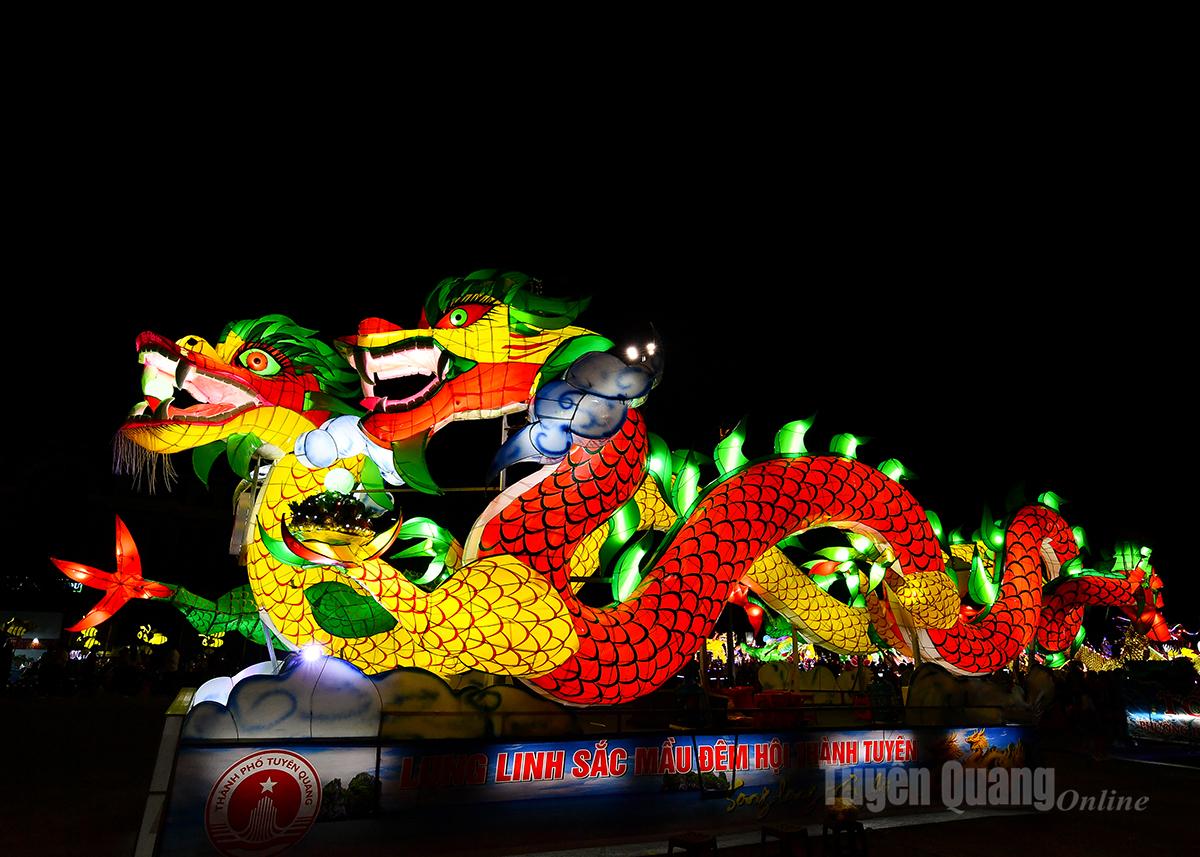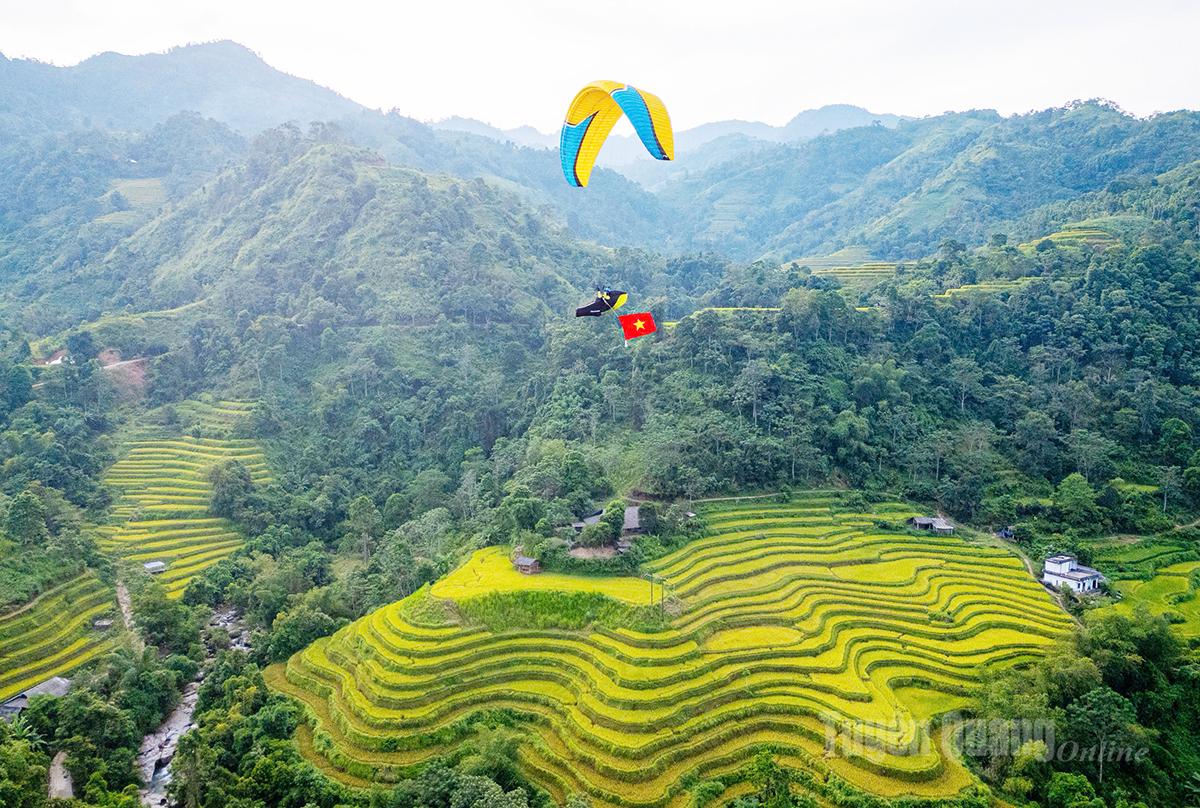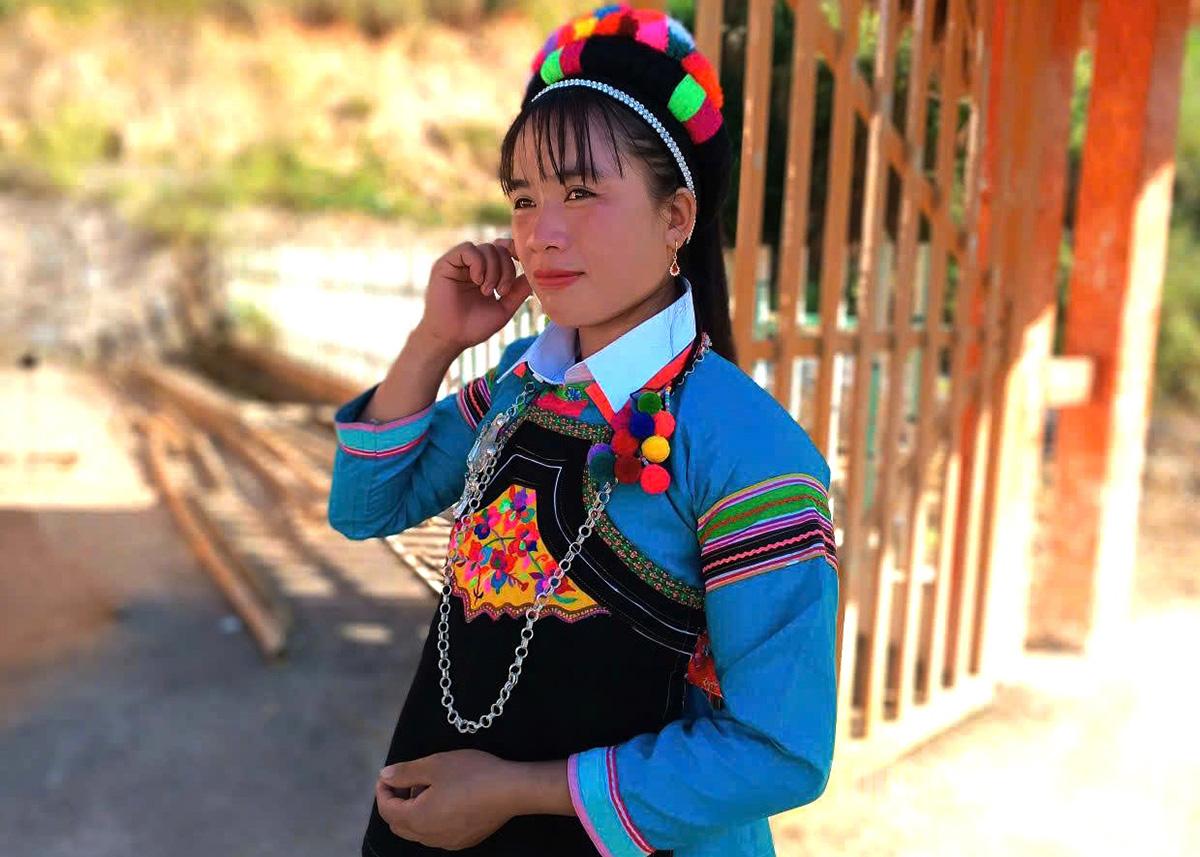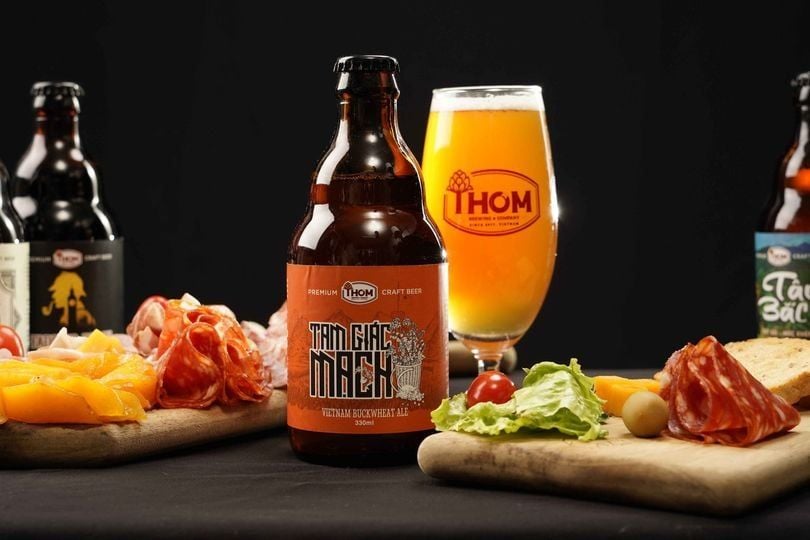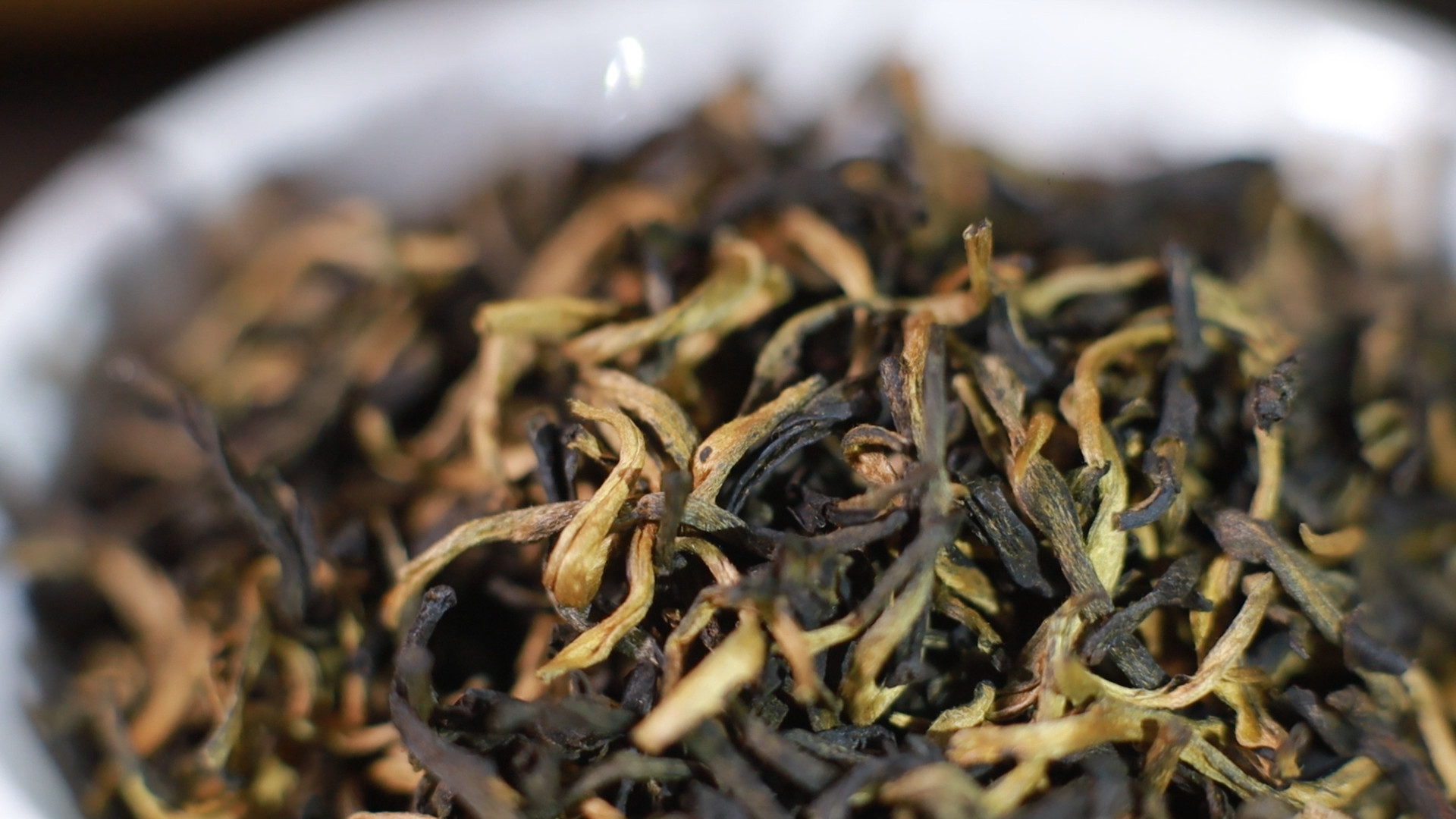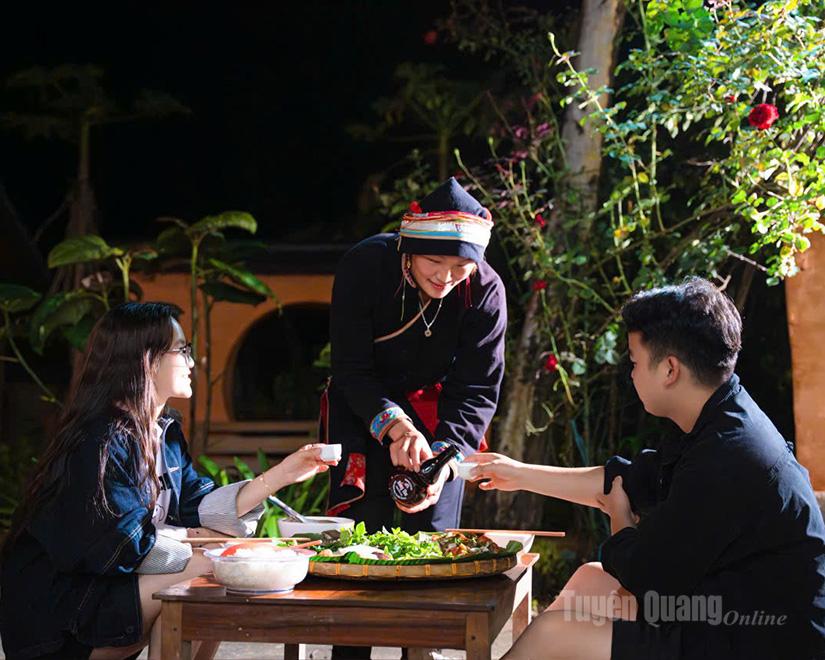
Tourists enjoy traditional food cooked by Dao ethnic people
Ethnic Cuisine: Soul from the Fields and Hearth
The food here originates from the most familiar elements of daily life and production: rice, corn, chicken, and fish. The Mong, living on high mountain slopes, are deeply connected to corn, making men men (steamed corn flour) and corn pho staples of their diet. During markets or festivals, thang co—a traditional stew of various meats and spices—becomes a focal point for community gatherings.
The Dao people's cuisine is rich in medicinal properties. Their dishes, like chicken stewed with rare herbs and fish braised with forest leaves, showcase their indigenous knowledge of using plants to both enhance flavor and promote health.
The Tay are famous for their cakes: banh khao (rice flour cake), banh chung den (black sticky rice cake), and xoi ngu sac (five-colored sticky rice). The latter is not just visually appealing but also holds spiritual significance, symbolizing the five elements and a wish for a successful harvest. Their duck roasted with Clausena lansium leaves is a specialty that delights visitors with its rich, fatty flavor blended with the aroma of the mountains.
The Lo Lo preserve many dishes linked to hunting and farming traditions, such as buckwheat cakes and smoked meats/sausages hung over the kitchen fire. This method of preserving food for the winter creates a unique and unforgettable flavor.
Beverages: The Essence of Ancient Tea and Forest Leaves
The ancient Shan Tuyet tea is a "treasure" of Tuyen Quang's highlands. These centuries-old tea trees grow on high, cloud-shrouded mountains, producing large buds covered in a soft, white fuzz like snow. When brewed, the tea is golden, with a gentle aroma, a crisp taste, and a deep, sweet aftertaste. For locals, a cup of Shan tea is a warm welcome and a symbol of purity.
Forest leaf water is a simple yet valuable drink. The Dao, Tay, and Mong often boil wild herbs like sweet grass and forest mugwort for a daily beverage. This drink is refreshing, aids digestion, and prevents illness, reflecting a deep indigenous knowledge of medicine.
Honey tea is a perfect blend of ancient Shan Tuyet tea and either Dong Van Staunton's Mint Shrub honey or Phuc Son honey. The delicate sweetness of the honey combined with the mild bitterness of the tea creates a nutritious drink that is very popular with tourists.
OCOP: Elevating the Value of Local Cuisine
Tuyen Quang now has hundreds of OCOP products, many of which are food-related, including Na Hang Shan Tuyet tea, Yen Son arrowroot vermicelli, Ham Yen seedless persimmons, and Phuc Son honey. These products have retained their traditional essence while being standardized with modern packaging and branding. Other OCOP products that have gained recognition include Hoang Su Phi ancient Shan Tuyet tea, Dong Van Staunton's Mint Shrub honey, Tuyen Quang oranges, dried buffalo meat, and buckwheat cakes. Many of these products have already established a strong presence in the domestic market, with some beginning to penetrate export markets.
Preservation and Development in a New Era
The merger of Tuyen Quang and Ha Giang presents a great opportunity to promote the region’s culinary essence. However, it also poses a challenge: how to preserve the traditional soul of these foods while developing them to meet market demands.
It is essential to continue elevating OCOP products by diversifying designs, building collective brands, and expanding distribution channels in partnership with tour operators. By doing this, each dish and beverage can become not just a cultural asset but also an an "economic specialty" in the province's journey toward sustainable development.
Nguyen Thanh Hieu
Vietnamese data source on Tuyenquangonline

